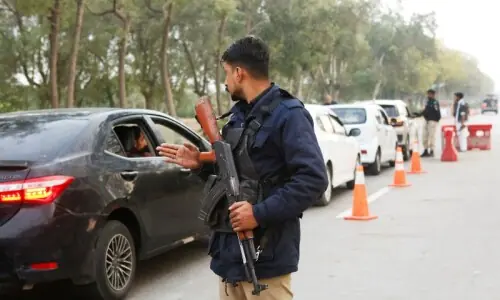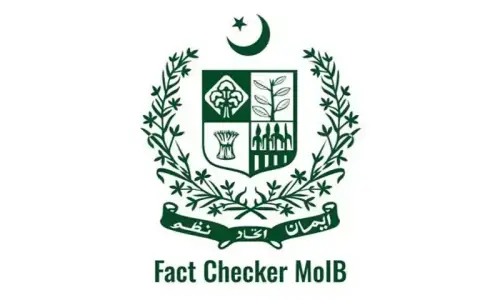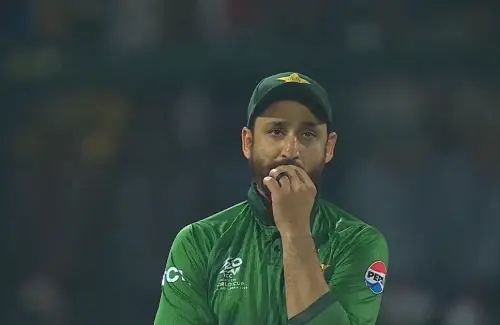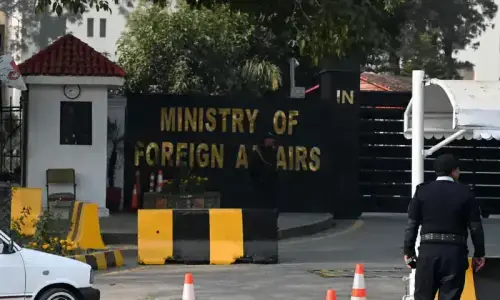The ceasefire between Israel and Palestinian fighters in Gaza was holding on Saturday, as humanitarian aid began to enter the Israeli-blockaded enclave ravaged by 11 days of aerial bombardment by the Israeli military.
As thousands of displaced Palestinians returned to their homes, international focus turned to the reconstruction of the Gaza Strip, shattered by Israeli air strikes.
In Jerusalem, however, Israeli police fired stun grenades on protesters at the highly sensitive Al-Aqsa mosque compound, in a sign of how volatile the situation remains, two weeks after similar violence sparked the worst Israeli assault on Gaza in years.
See: A timeline of Israel's latest military offensive in Gaza
Clashes also broke out in several other parts of Israeli-occupied East Jerusalem, and at the crossing point between Jerusalem and the West Bank, Israeli police said, adding that hundreds of officers and border guards had been mobilised.
US President Joe Biden said he had told the Israelis to stop “inter-communal fighting” in Jerusalem, and pledged to help organise efforts to rebuild Gaza.
He also stressed “we still need a two-state solution. It is the only answer, the only answer.”
Aid arrives

Convoys of lorries carrying aid began passing into Gaza through the Kerem Shalom crossing after it was reopened by Israel, bringing much-needed medicine, food and fuel.
The UN's Central Emergency Response Fund said it had released $18.5 million for humanitarian efforts.
Tens of thousands of Gaza residents ventured out on Friday for the first time in days, checking on neighbours, examining devastated buildings, visiting the sea and burying their dead.
Read: 'Today is when Eidul Fitr begins': Gazans take to the streets to celebrate truce
Rescuers there said they were working with meagre resources to reach any survivors still trapped under the rubble.
Nazmi Dahdouh, 70, said an Israeli strike had destroyed his home in Gaza City.
“We don't have another home. I'll live in a tent on top of the rubble of my home until it's rebuilt,” the father of five said.
In total, Israeli air strikes have killed 248 people including 66 children since May 10, and wounded 1,948 others, the health ministry has said. Fighters are also among those killed.
Large areas have been flattened and some 120,000 people have been displaced, according to Hamas, the group that rules Gaza.
The Israeli army said Gaza fighters fired more than 4,300 rockets towards Israel, of which 90 per cent were intercepted by its air defences.
The rockets claimed 12 lives in Israel, including one child, a teenager and an Israeli soldier, with one Indian and two Thai nationals among those killed, Israeli authorities say. Some 357 people in Israel were wounded.
“Our message to the enemy is clear — if you come back, we'll come back too,” a spokesperson for the armed groups in Gaza said at a press conference, while Israeli defence minister Benny Gantz warned that “the enemy” had no immunity.
Both sides claim victory
Both sides claimed victory after the Egypt-brokered truce, which also included Gaza's second most powerful armed group, Islamic Jihad.
Prime Minister Benjamin Netanyahu said Israel's bombing campaign had killed “more than 200 terrorists” in Gaza, including 25 senior commanders — an “exceptional success”.
For its part, Hamas' political chief Ismail Haniyeh said they had “dealt a painful and severe blow that will leave its deep marks” on Israel. He also thanked Iran for “providing funds and weapons”.
Iran itself praised a “historic victory” and reaffirmed Tehran's support for the Palestinian cause, while there were demonstrations in support of Palestinians in Jordan, Libya and elsewhere.
Egyptian state media said two Egyptian security delegations had arrived to monitor the deal from either side.
'Genuine opportunity'
World leaders welcomed the truce.
“I believe we have a genuine opportunity to make progress and I'm committed to working towards it,” Biden said.
The European Union echoed his call for a two-state solution to the conflict.
The US State Department said top diplomat Antony Blinken would “meet with Israeli, Palestinian and regional counterparts in the coming days to discuss recovery efforts and working together to build better futures for Israelis and Palestinians”.
Russia and China called for a return to peace talks, and UN chief Antonio Guterres said Israel and the Palestinians must now have “a serious dialogue to address the root causes of the conflict”. He too called for “robust” reconstruction aid.
The violence began in Jerusalem, sacred to Jews, Muslims and Christians.
Its holy sites have sparked many of the worst episodes violence in the region.
On May 10, an Israeli police attack on Palestinian worshippers at the Al-Aqsa mosque compound prompted Hamas to launch rockets into the Jewish state.
Israel's military responded with air strikes on what it described as military targets in Gaza — though Palestinian and international groups have accused it of recklessly hitting non-military sites in the densely populated strip.
Israel says it makes efforts to avoid civilian casualties, including by phoning residents to warn them of imminent strikes, but a majority of those killed by its bombardment were innocent civilians.
It blames Hamas for placing military sites in densely populated areas.
The unrest also fuelled violence between Jews and Israeli Arabs in mixed cities.
Security forces have clashed with Palestinian protesters in the West Bank and East Jerusalem. At least 25 Palestinians have been killed in these cities.
Israel said at least five had attempted to attack its forces.
































